Outreachy report #54: February 2023
What started with the ambitious goal of creating an opportunity so all Outreachy organizers could meet in person ended with a reflection on conference organization and how inaccessible they can be for those living in the Global South.
I’m no stranger to international conferences at this point, but I’ve attended a limited number of them due to how expensive and difficult such trips can be. I live in a city in the heartland of Brazil called Goiânia. While GYN (Goiânia’s airport) is certified as an international airport, there are no international flights in operation (and I doubt there will be many, if any — airlines still find it cheaper to fly passengers to an international hub). That means I have to necessarily flight somewhere else to fly internationally.
Our biggest international hub is still GRU. Flights departing from BSB, the nearest international hub to me and Brazil’s capital city, tend to be significantly more expensive. Before traveling to Brussels, I’d been abroad thrice: to attend Mozilla Festival in London, UK; to attend the Chan Zuckerberg Initiative in Buenos Aires, Argentina; and to attend FOSSY in Portland, OR, US. During said trips, I’ve experimented with layover durations to see if there was any way I could make things more comfortable and less stressful. No experiment was successful:
- When traveling to the UK for the first time, I had to endure a 13 hour layover at GRU. At the time, the airport actively discourage passengers from spending too much time in the common areas — security would bother my carer and I from time to time to move somewhere else while we waited for the time to check in our bags. We were extremely miserable, and couldn’t resort to lounges as they’re all located in the restricted area and we were broke students at the time who couldn’t afford it. Today, resorting to seats in the common area wouldn’t be possible — GRU removed them all.
- When traveling to Argentina, we had a 4 (leaving to Buenos Aires) and 3 hour (returning to Goiânia) layover. The whole process was rushed — we have to walk 2.5 km to reach Terminal 3. We didn’t have lunch the day we traveled to Buenos Aires because we simply didn’t have time to eat between disembarking from our domestic flight and boarding our international flight. Additionally, when returning to Goiânia, our flight had a 42 minute delay before arriving in Brazil and our domestic flight gate kept changing further and further at the airport. I was so dehydrated at one point it triggered several high heart rate notifications.
- When traveling to the United States, we had very short layover times at GRU (less than an hour, to the point the disability assistance airport employee had to rush me through the airport in a wheelchair so we would make it to the gate) and long layover times at DFW (4-6 hours). That short layover time when returning to GRU meant that when our flight to GRU had a 1 hour delay, we automatically lost our connection flight to Goiânia. And it took us so long to get our luggage back and go through customs that we almost lost our new flight at CGH, too (American Airlines opted to have us take our next flight at CGH instead of waiting for another one at GRU).
Traveling as a disabled person can be challenging. I need more time to navigate spaces, I need assistance from my carer, flight attendants, and airport and airline employees. After what I’d call difficult experiences, we decided to experiment with the concept of buffer days. Buffer days, in this case, are days between international and domestic flights. We headed to a hotel in São Paulo and spent a night there before our international flight the next day. That experiment was successful: we felt well-rested to endure a 12 hour flight to London.
With the exception of Stuttgart (which folks in Germany have told me is one of the most terrible airports in the country), British Airways was outstanding in their disability assistance. Gate agents, flight attendants — everyone was transparent, kind, and went out of their way to accommodate me.
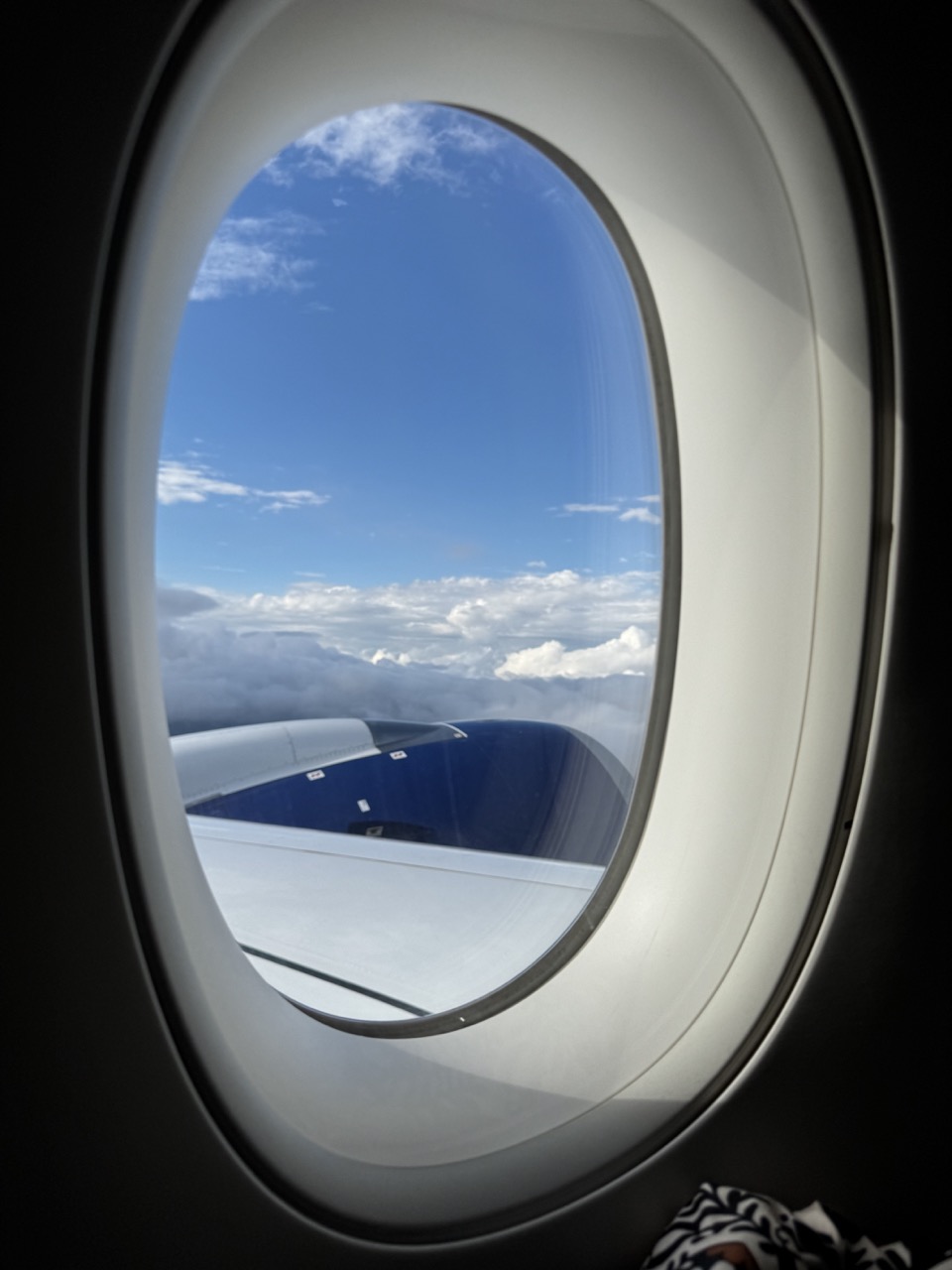
We decided to fly to London and then catch a train to Brussels. Not only this is more envinronmentally friendly, but it’s less stressful than catching two flights in such a short time. Eurostar’s Standard Economy has significantly more leg room than a Standard Economy seat on any airline, too.
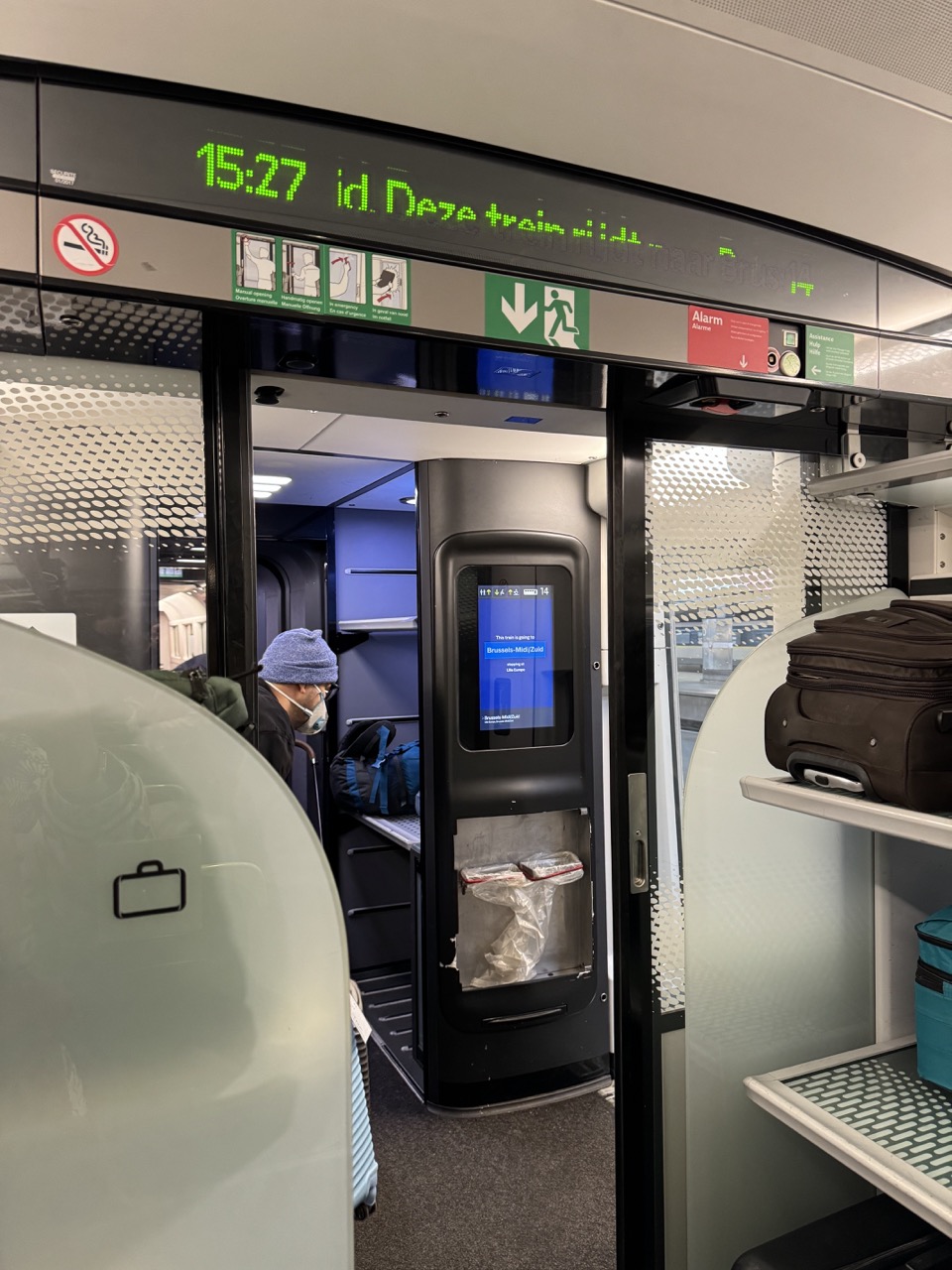
It was our first time traveling by train. I read a lot of comments from Europeans who couldn’t understand why someone would pay for an Eurostar ticket when they could fly to the same destination for much less and arrive even earlier. They seemed particularly puzzled when people replied they liked to admire the English and French landscapes.
It’s true, there’s nothing particularly scenic about this trip to Brussels, but it was still remarkably beautiful to watch the sunset at 300 km/h.
We arrived at Bruxelles Midi at night and we were surprised to hear two Brazilians chatting as we waited for our tram to the Ixelles neighborhood. We’d learn later on thar Brussels has a huge Brazilian community! We even found a Brazilian goods store in one of our walks in Ixelles.
During the five days before FOSDEM we had several meetings with Outreachy organizers and Software Freedom Conservancy staff. We hosted Outreachy meetings at Sage’s Airbnb.
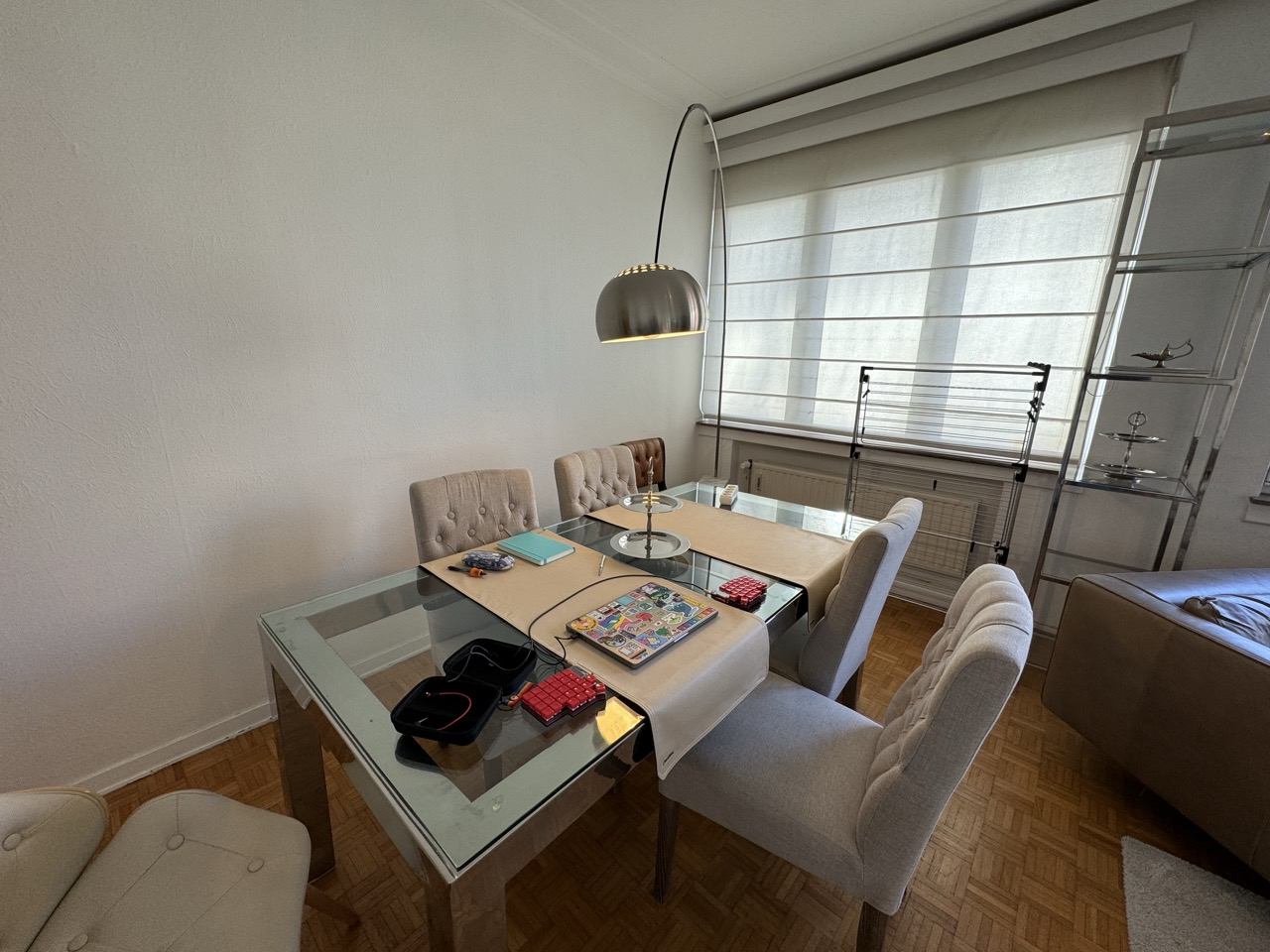
During Outreachy meetings, we:
- Planned the cadence and timing of our keynote and Birds of a Feather (BoF) sessions at FOSDEM 2024.
- Reviewed feedback submissions from mentors and interns participating in the December 2023 cohort.
- Planned the next steps for our May 2024 cohort.

We hosted a Software Freedom Conservancy + Outreachy meeting at one of the Silversquare locations in Brussels. We shared with one another:
- What led us to our careers and free and open source
- Our opinions on the current state of free and open source
- Personal tidbits such as our hobbies and personal tastes
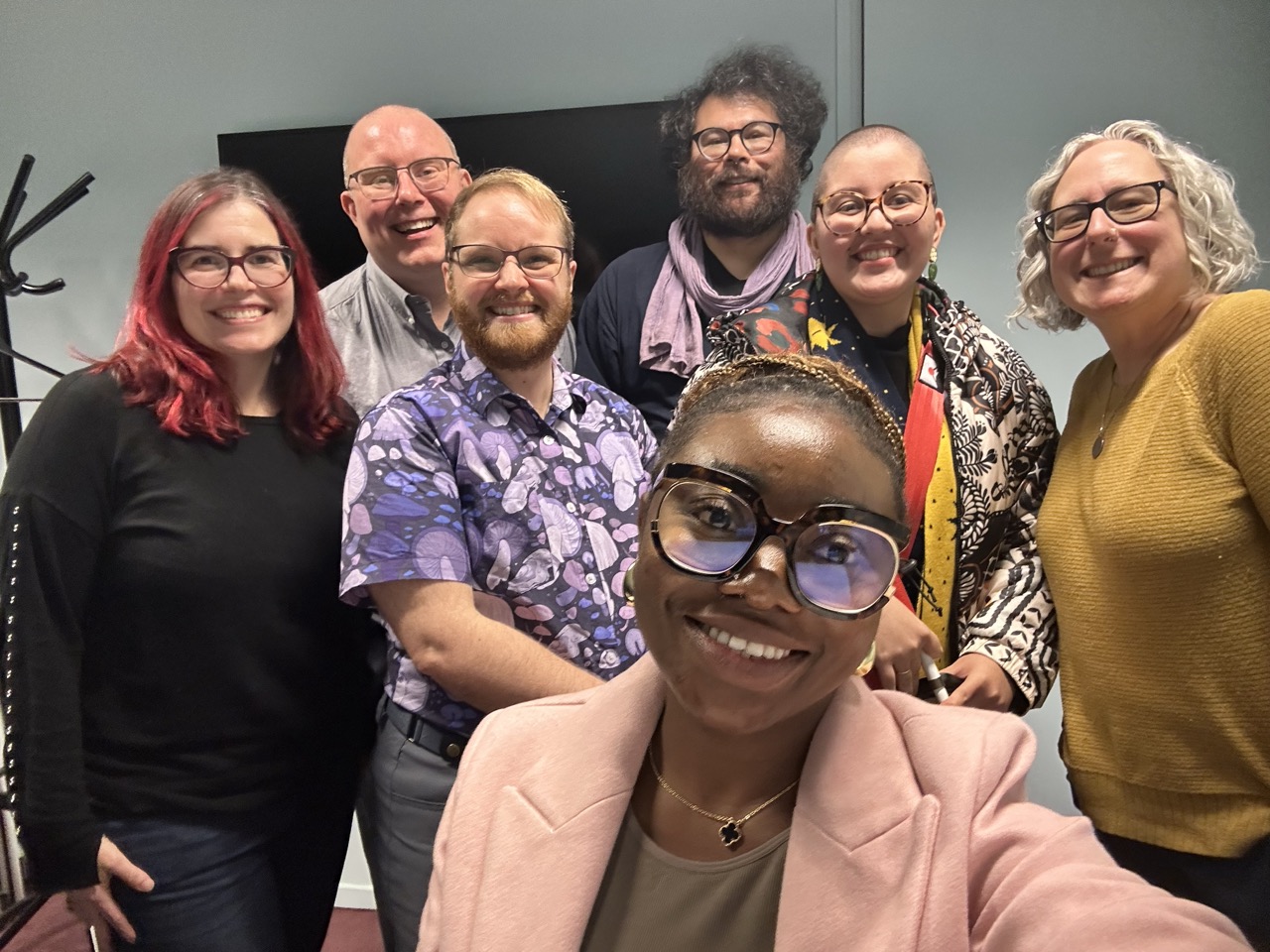
On the first day of FOSDEM 2024, Outreachy organizers met early to add the finishing touches to our slides and walk together to ULB in time to watch the opening keynote.
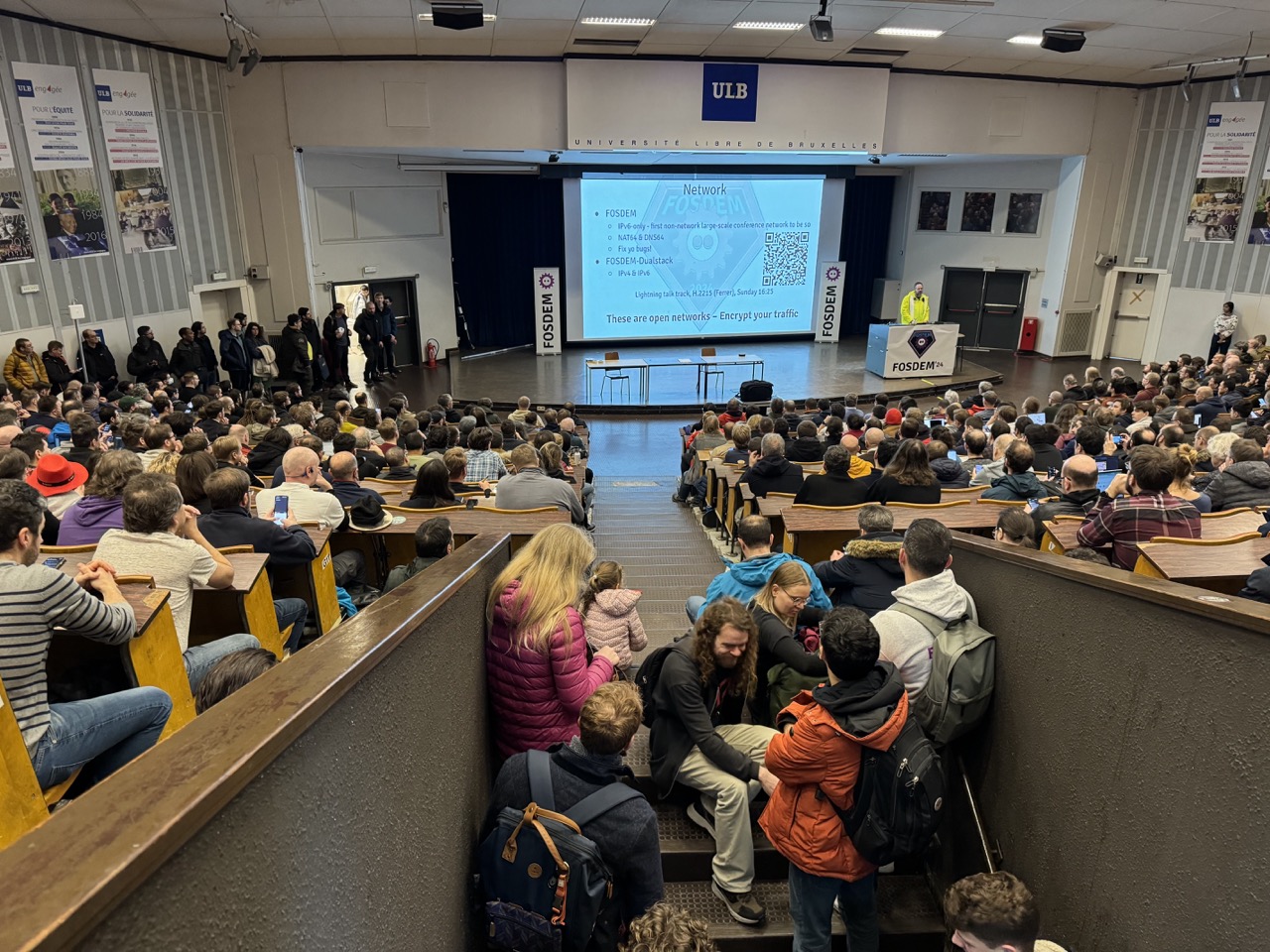
I was disappointed to hear the organizer dismiss the spread of COVID-19 and other contagious diseases as something that has happened and will always happen at conferences like theirs. The organizer’s matter of fact tone when talking about it made me realize this would be my first and only time attending FOSDEM.
Here are some the common excuses people use to deflect every time I bring this up:
-
“COVID-19 isn’t a problem anymore.” What world do you live in?
-
“No one is requiring people to mask anymore. Why should them?” Why settle for mediocrity? We are free software advocates — we already do so many things the majority of people don’t.
-
“But I hate masking.” And I hate getting sick. And I hate that we’re gambling with people’s health.
We all should strive to do better, but it seems like FOSDEM is only interested in expanding and expanding every year to the point they’re at the limit or have already surpassed the venue’s capabilities. I could barely hear what people at stands had to say to me. I could barely walk around with my white cane. Is this conference really enjoyable when every activity feels so out of reach?
Nonetheless, we delivered our keynote speech to an audience of coordinators, mentors, alums, interns, and people who had never heard of the program before.
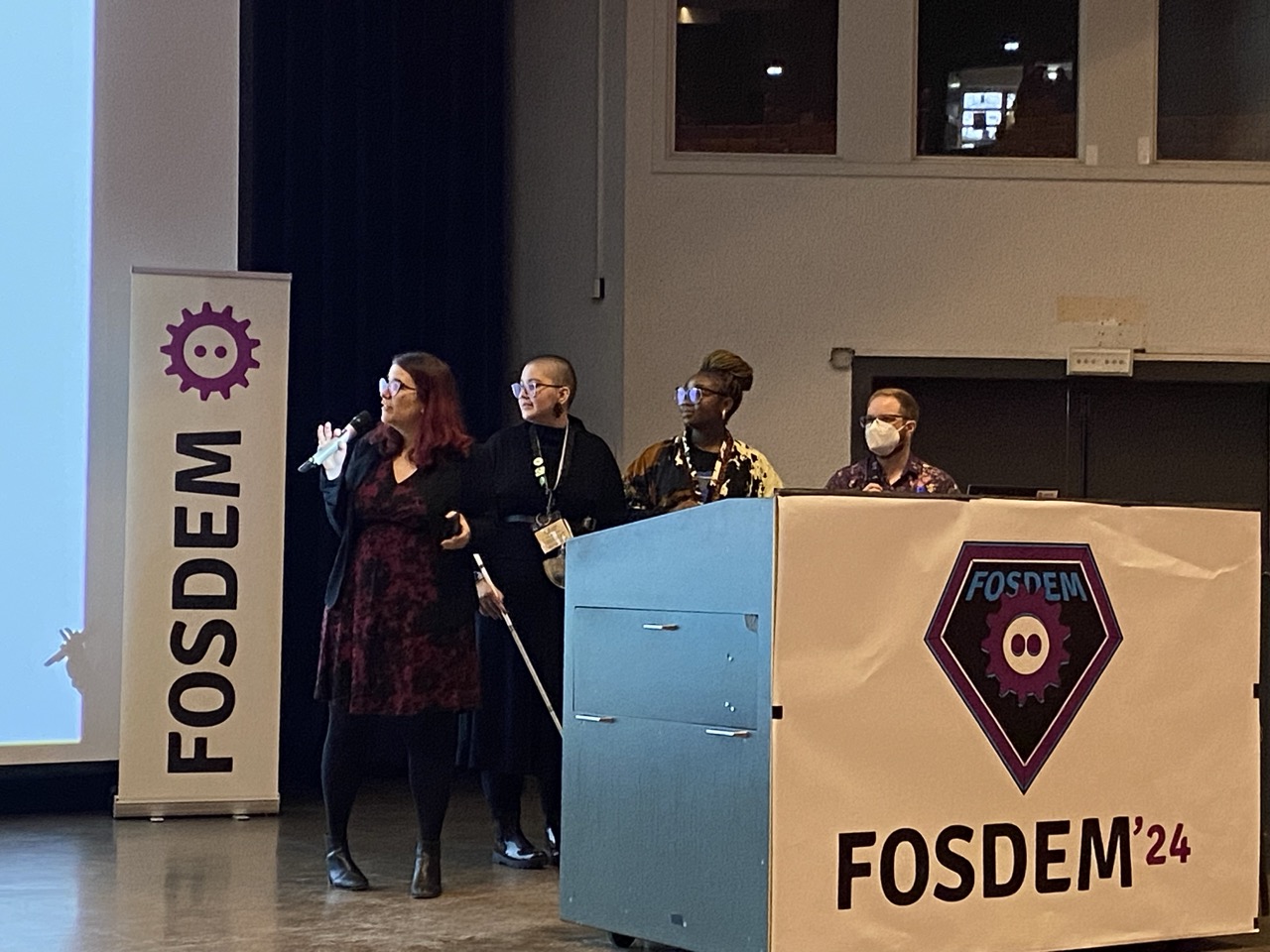
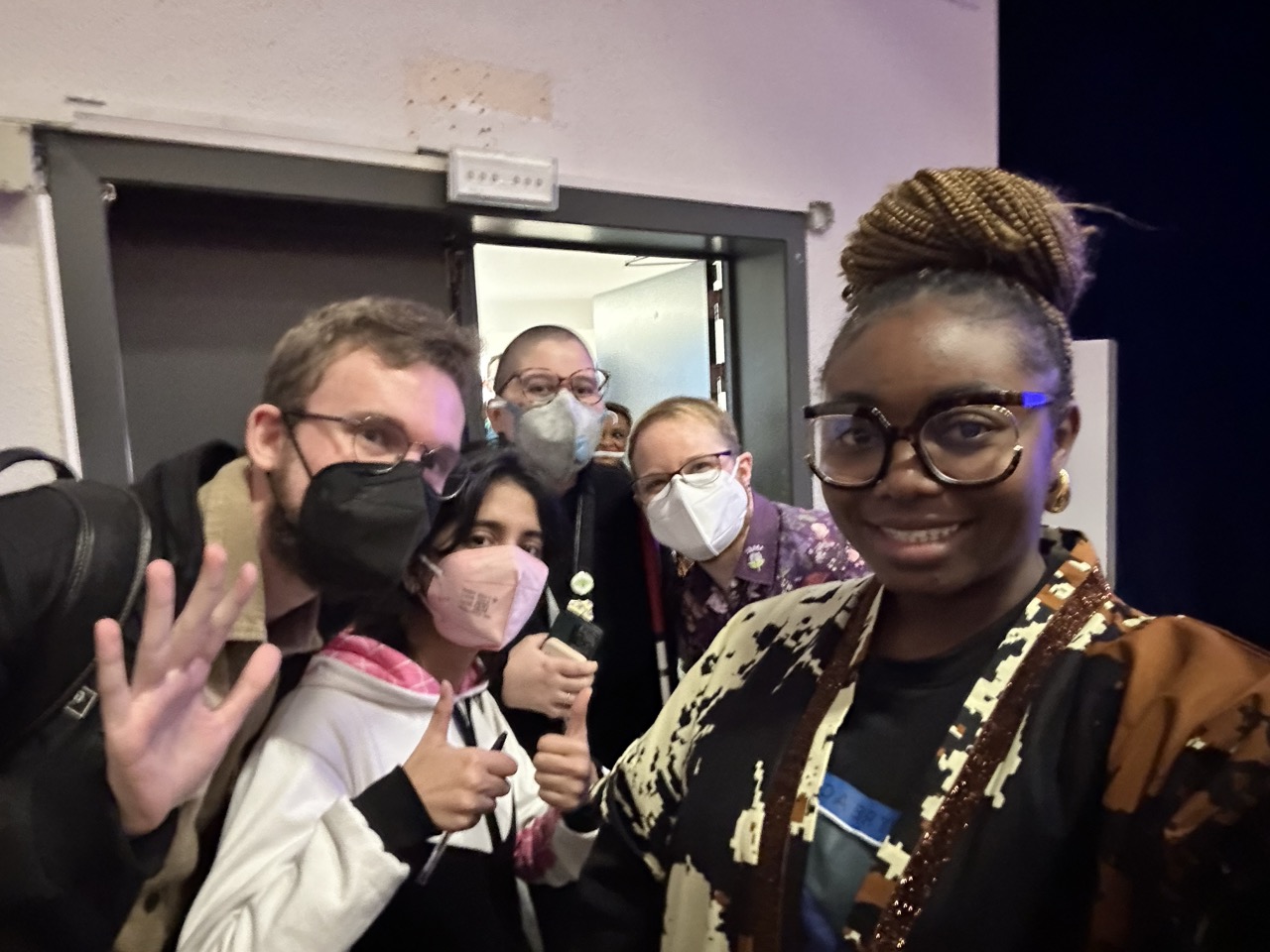
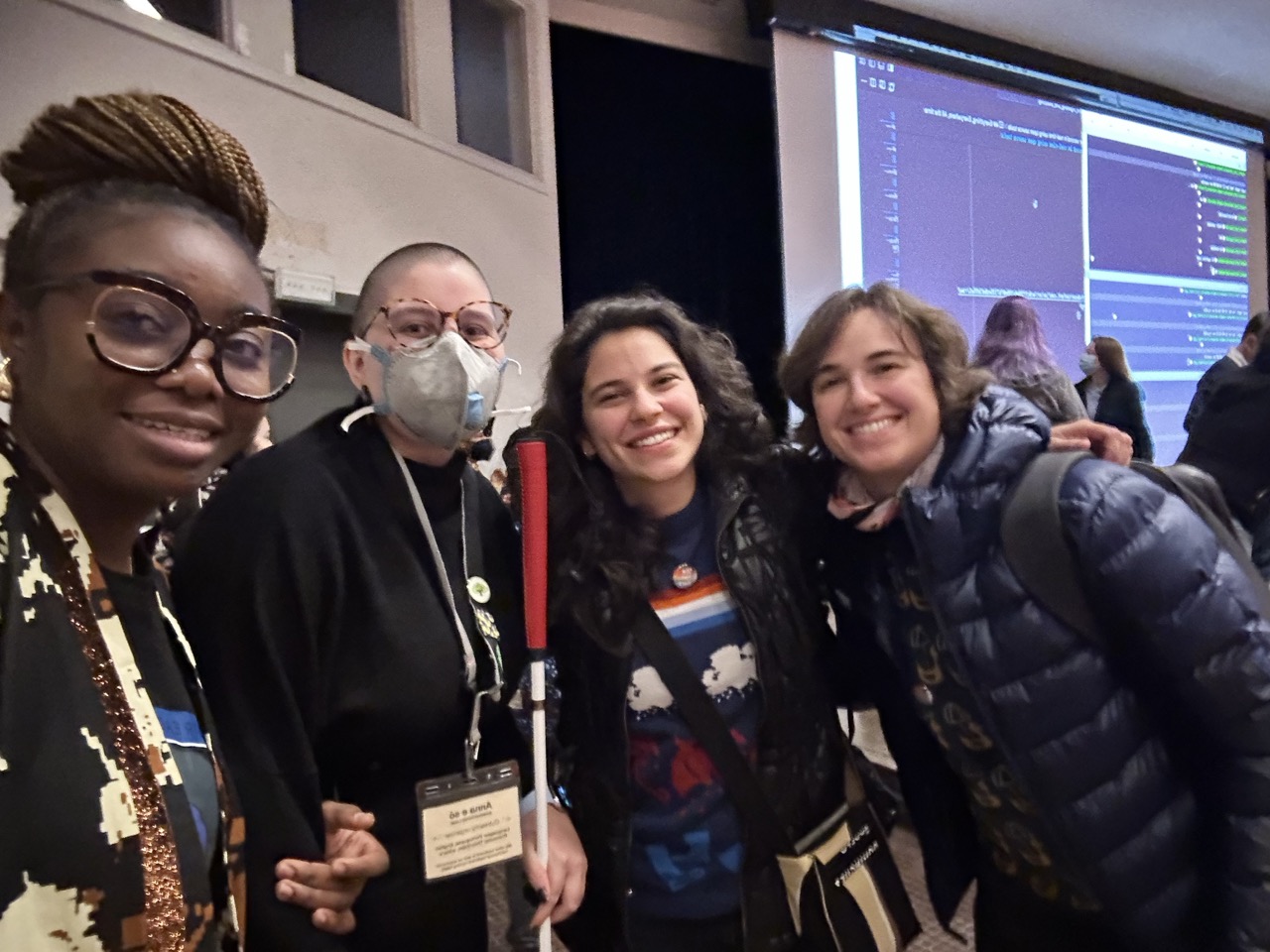
And hosted our BoF even though getting to the room was quite challenging.
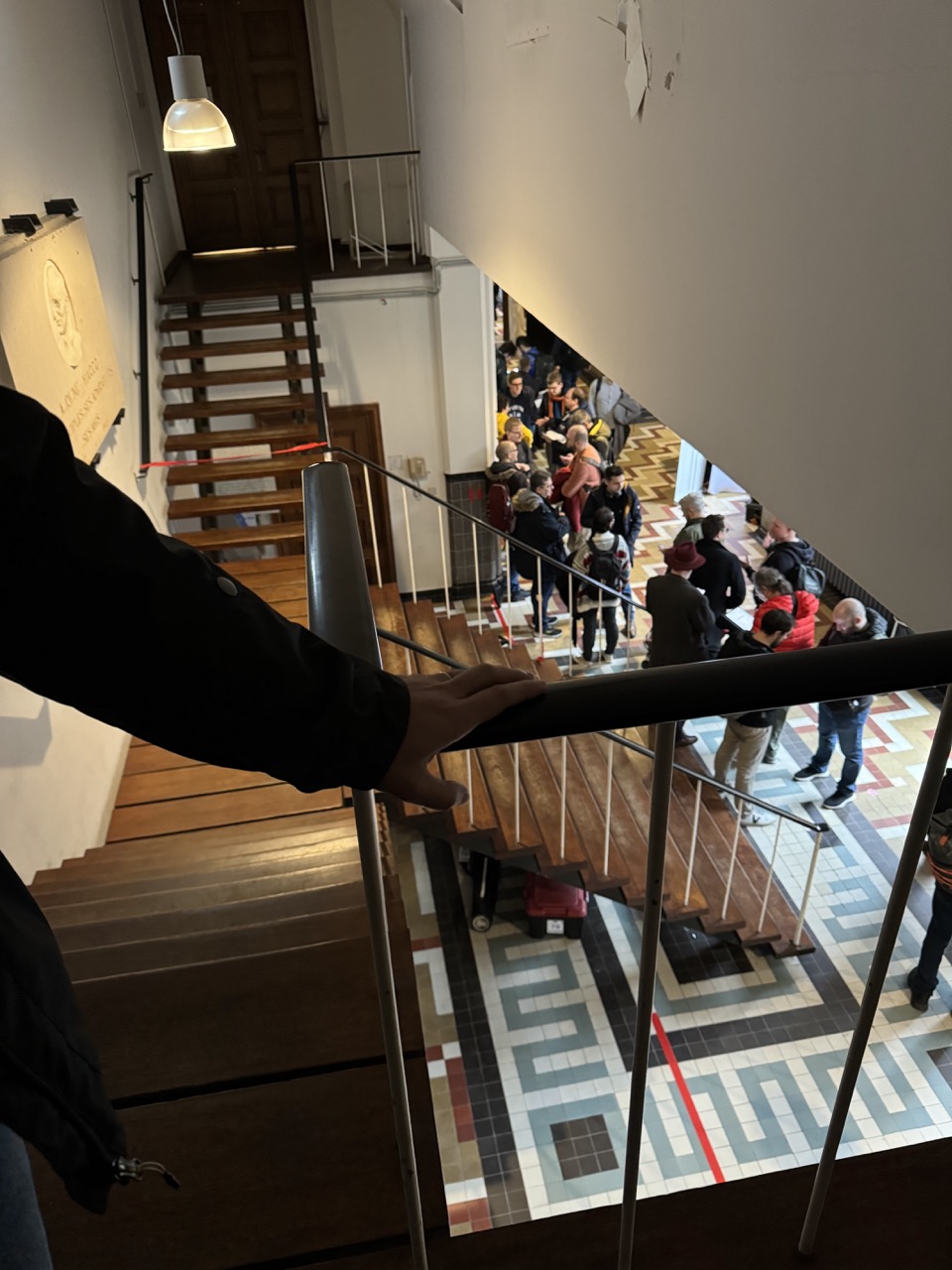
We collected some really interesting feedback at our Bids of a Feather session:
- Mentoring organizations are interested in seeing us implement a mentor rating system on our feedback submissions.
- Mentoring organizations would like to have access to a grant or sponsor deck about Outreachy to facilitate the process of asking for funding.
- New mentoring organizations would like to know how much time it takes to get their community to the point it can be considered “Outreachy ready”.
- Mentoring organizations would like to know about the overall experience interns had with their community.
The last point was reiterated during one of our mentor onboarding sessions this month. Mentoring organizations seem to be quite interested in applicants’ and interns’ perspectives on their mentoring style and community as a whole.
It saddens me that I had such a negative impression of FOSDEM when FOSDEM is the conference you can meet so many amazing FLOSS advocates. But after so many decades, I feel like we need to find better and more diverse spaces.
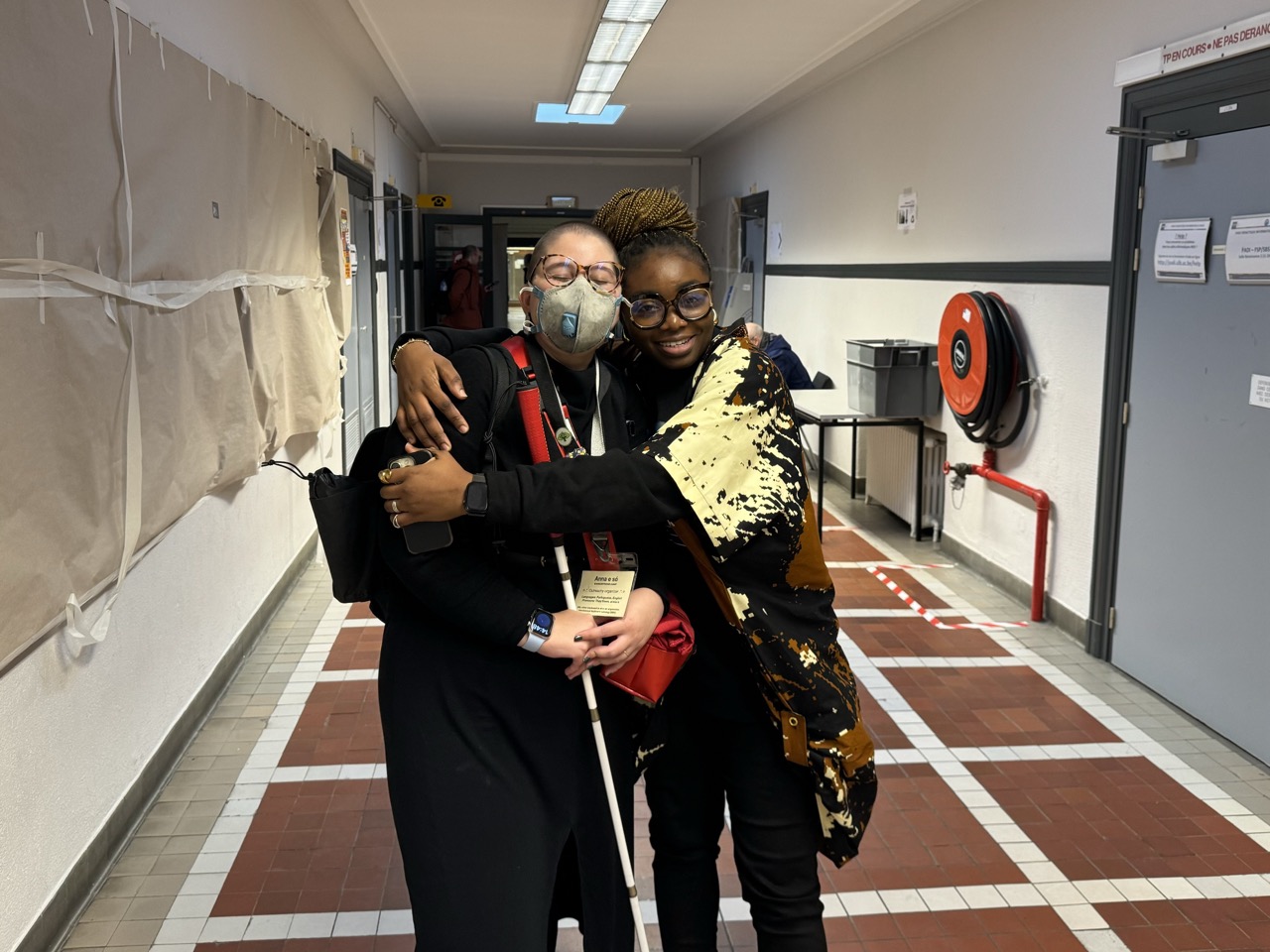
Lastly, here are some of the sessions I enjoyed very much:
- Where have the women of tech history gone? (Although their perspective didn’t seem to stray from the Global North.)
- Copyleft and the GPL: Finding the Path Forward to Defend our Software Right to Repair
- Enhancing Linux Accessibility: A Unified Approach
- Breaking Barriers: Content Management Systems and Accessibility
- Open Source DocOps
- Docsy for documentation: looking back, looking forward
- Web-accessibility for open-source privacy & security tools
- RHEL and CentOS and the growth of openwashing in FOSS
- Open practices for open projects
- The Many Hats of a Maintainer: Organizational Design That Helps Reduce Them